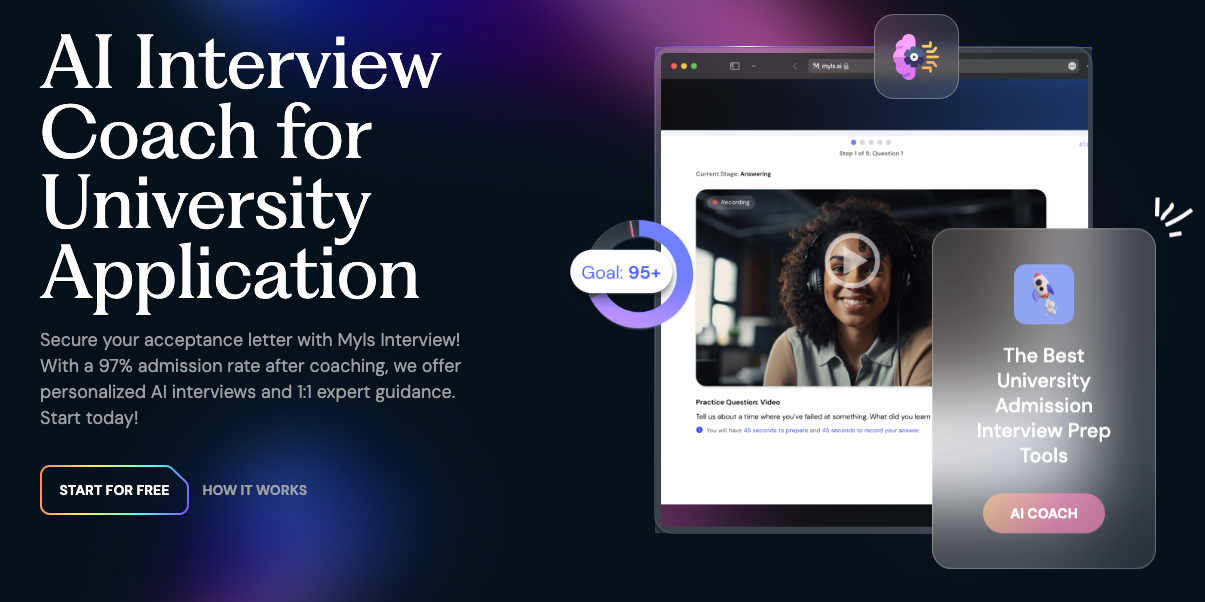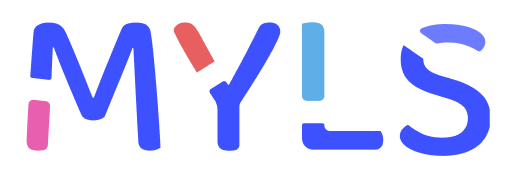University of Toronto Engineering Science Supplementary Application Guide
Excel in U of T’s EngSci application with Myls Interview! Practice mock video interviews, receive detailed feedback, and refine your problem-solving and communication skills. Tailored question banks and expert guidance help you stand out. Sign up today to boost your confidence and performance!

U of T Engineering Science (EngSci) Program Overview
The Engineering Science (EngSci) program at the University of Toronto is an elite and rigorous undergraduate program that integrates engineering and advanced science, designed for students with exceptional academic and problem-solving abilities. It offers a foundational curriculum in the first two years, followed by specialization in various fields such as Aerospace Engineering, Biomedical Systems Engineering, Energy Systems, and Machine Intelligence in the final years. EngSci emphasizes innovation, interdisciplinary thinking, and cutting-edge research.
Introduction of the Program and the Supplementary Application
The University of Toronto Faculty of Applied Science & Engineering (EngSci) is consistently ranked among the top engineering schools globally. With a strong emphasis on experiential learning, interdisciplinary problem-solving, and industry integration, U of T Engineering is ideal for students aiming to lead innovation in fields like AI, sustainability, biomedical systems, and infrastructure.
Admission is highly competitive. In addition to strong academic records in math and science, applicants must complete the Supplementary Application Form (SAF), which includes written responses and a timed video interview. This application is a holistic assessment of a student’s character, motivation, and fit for engineering.
🔹 Engineering Science (EngSci)
The EngSci program is tailored to highly motivated students who seek depth in science and math before choosing a technical major. First-year courses in quantum mechanics, linear algebra, and thermodynamics lead into majors such as:
- Aerospace Engineering
- Biomedical Systems
- Machine Intelligence
- Robotics and Mechatronics
- Engineering Mathematics and Statistics
EngSci is ideal for students considering graduate studies, R&D careers, or emerging technologies.

U of T Engineering Supplementary Application (Video Interview)’s Question Format
The Online Student Profile (OSP) is a mandatory part of the application process for U of T Engineering programs, including EngSci. This profile often includes a Personal Profile section, which comprises both written and video responses.
The Personal Profile typically consists of:
- One Written Question: Applicants are given a prompt and must provide a written response within a specified word limit.
- Two Video Interview Questions: Applicants respond to prompts through recorded video answers, usually with a short preparation time followed by a set duration to record their response.

What Makes a Strong Applicant?
The SAF allows the admissions team to identify students who are not only academically qualified but also:
- Thoughtful and self-reflective
- Clear communicators in both speech and writing
- Motivated by real-world problems
- Able to learn from failure or ambiguity
- Collaborative in diverse settings
Top applicants often have experiences across disciplines—from coding competitions and science fairs to community service, startups, or sports leadership. Authenticity, not perfection, stands out.
Strategic Preparation Tips
Structure Your Answers
Use the STAR method (Situation, Task, Action, Result) to structure both written and spoken responses. This method ensures depth, clarity, and narrative flow.
Practice With Time Pressure
Simulate real conditions using a timer. Practice thinking aloud and avoiding filler language (“like,” “um”).
Strengthen Written Fluency
In the timed written question, avoid overly casual or academic tones. Aim for professional clarity: focused, articulate, and responsive to the question.
U of T Engineering Science (EngSci) Program Timeline/Deadline
- OUAC Application Deadline: January 15, 2025
- SAF Supplementary Form Deadline: Late January (check U of T Engineering Admissions for exact dates)
What is the Program Looking For
The Engineering Science (EngSci) program at the University of Toronto seeks highly motivated and academically talented students who excel in STEM subjects and have a passion for innovation, problem-solving, and interdisciplinary learning. Ideal candidates demonstrate strong leadership potential, teamwork, and collaborative skills, coupled with critical thinking and adaptability to tackle complex challenges. The program values individuals with a genuine interest in engineering innovation and a drive to make a meaningful impact on the world through technology and research.
Career Outcomes After U of T Engineering
Graduates enter some of the most impactful and high-paying careers in Canada and abroad:
- Software Engineer at Google, Shopify, IBM
- Data Analyst or Machine Learning Specialist in finance and AI startups
- Mechanical or Aerospace Engineer in automotive or space tech
- Structural Engineer in sustainable urban infrastructure
- Founder or early-stage team member at tech startups
- PhD candidate in Engineering Science or Applied Math
- Climate Innovation Researcher or Sustainability Consultant
U of T Engineering alumni are globally recognized for their rigor, innovation, and leadership in both academia and industry
Final Academic Recommendation
The U of T Engineering Supplementary Application is not a formality, it is your academic voice in action. It demonstrates how you think, lead, and reflect beyond test scores. Admissions officers are looking for signs of maturity, resilience, and potential to thrive in one of Canada’s most demanding academic environments.
With thoughtful storytelling, structured preparation, and Myls Interview mock university interview preparation tool, you can position yourself as more than just a high-achieving student-you can present yourself as a future engineer who will thrive at U of T and beyond.
How Myls Interview Helps You Succeed

Your Academic Preparation Companion
Myls Interview is a simulation-based platform specifically designed for high-stakes academic interviews like the U of T Engineering Supplementary Application. It supports both video and written preparation, combining AI feedback with academic strategy.
With Myls Interview, you can:
- Practice with U of T Engineering-style interview prompts
- Record video responses under real time constraints
- Get instant AI scoring and performance analytics
- Receive written feedback on grammar, structure, and content depth
- Access mentor feedback through Unlimited Plan
- Use reflection templates to improve storytelling and structure
- Learn to express traits U of T values—resilience, curiosity, collaboration, and leadership
Unlike generic coaching platforms, Myls Interview is built for Canadian university formats like Kira Talent. It mirrors real pressure, helps you build verbal fluency, and ensures your written voice is authentic and academically grounded.
Thousands of applicants have used Myls Interview to build confidence, eliminate filler words, structure powerful stories, and prepare for both video and written components of the U of T Engineering Supplementary Application.
Sign up for free today!



